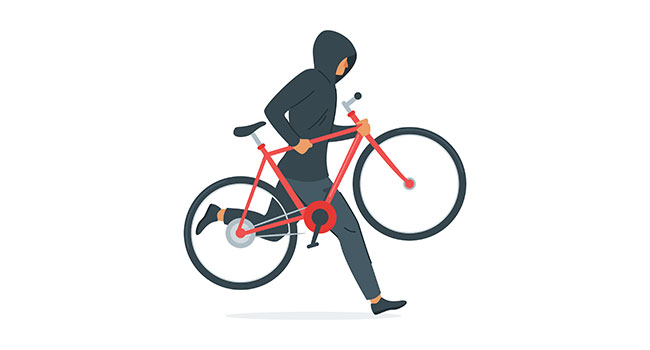
The Marathon of Constant Vigilance
- By Matt Jones
- March 22, 2022
You think that it will never happen to you—until it does.
My freshman year of college, I bought a bike to help me zip around campus and the surrounding area. The bike wasn’t anything fancy. Red, two or three speeds, less than a hundred bucks from Walmart. It wasn’t the kind of showpiece anyone would go out of their way to notice or steal. But out of general common sense, I did buy a U lock along with it, and I did make it a point to use it every single time I got to my destination.
One session of freshman orientation had been a presentation from the campus chief of police. He mentioned that the most commonly reported crime on campus was bike theft. And he said the first question he asked any student who reported such a theft was, “Did you have a lock on it?”
The chief had some derisive nickname and a canned speech for the students who answered no. I don’t remember what the nickname was; I wish I did. He seemed to be having a good ol’ time chuckling at their misfortune. At the time, I found it patronizing. But sometimes, the best tack to get past the arrogance and unearned confidence of youth is a healthy portion of light ridicule.
I locked my bike every single time I used it for three years. It didn’t take long; I carried the keys on my keychain anyway; and in a major metropolitan area, who wouldn’t take an extra 15 seconds to secure their property before leaving it outside, untouched for days (sometimes weeks) at a stretch? Idiots, I decided. Bad things only happened to people who didn’t care enough to protect themselves against them.
(Please see above re: the unearned confidence of youth.)
And then, the summer after my junior year, a friend asked if he could borrow my bike for a few days. I said of course, no worries. When he was done with it, I walked the mile from my off-campus apartment to his to fetch the bike and ride it back home. He handed it over, no worse for wear. But between chatting and the late hour and maybe a beer or two, he forgot to give the lock back, and I forgot to ask. It didn’t even occur to me until I was back home and sliding the front tire into the rack outside my front door.
I considered bouncing back over to my friend’s place to grab the U lock. But it was already dark, and I was tired, and I’d just gotten home, and I decided to take the calculated risk that it really would be fine for just one night.
I came downstairs the next morning, and it was gone. I never saw that bike again. I didn’t even report it stolen; I’d already heard the chief’s speech once.
Sometimes, the hard part isn’t taking an extra 15 seconds to secure your property. Sometimes the hard part is doing it every single time, no matter the place, time, your mood, the circumstances, your mental state, your past success rate, etc. It’s a test of endurance and constant vigilance. It’s not about the 99 times you do something right; it’s about that one time you decide to cut yourself a little slack. It’ll be fine, you think. I’ve done this 99 times, and nothing bad has ever happened. I can skip it once. And then, almost immediately, you watch the whole thing go belly-up. And you don’t have anyone to blame but yourself.
You think that it will never happen to you—until it does.
This article originally appeared in the March / April 2022 issue of Campus Security Today.